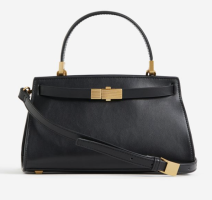This is such an interesting thread. I'm not an IP attorney, but I am a commercial litigator and typically defend corporations. Typos and grammar aside (I haven't read the petition), I see grammatical errors all the time in pleadings from major law firms but that doesn't make their case any less valid. I wouldn't be so quick to dismiss the plaintiffs' allegations either. The plaintiffs have the burden of proof and have a very tall hill to climb. But they will be allowed substantial discovery into Hermes corporate records, including who they offered bags to and how much the person spent. It may be circumstantial evidence, but it's evidence nonetheless and likely admissible. I think the problem for Plaintiff's counsel is no jury is feeling sorry for anyone who can't purchase a five-figure bag. With that said, there may be reasons this case won't be heard by a jury, i.e. Hermes may not want to disclose its corporate documents. I have no doubt there will be protective orders in place that will prohibit the plaintiff's from discussing or disclosing Hermes confidential and proprietary information, i.e. customer lists, pricing, etc.
Most people are caught up in the fact that we are talking about Hermes and the ability to purchase an expensive bag. But what if we were talking about a more accessible company such as Target or Walmart, and they were tying high demand products (not necessarily necessities, but products most people come to think of as necessities, i.e. TVs, computers, etc.) to the sale of lesser demand products? I'm curious if people's opinions of the plaintiffs would change.
Keep in mind, these are first world problems and no bag is worth this sort of effort in my opinion. And "coercion"? Please....
This!

 A good lawyer with an experienced economist can probably present a very convincing case.
A good lawyer with an experienced economist can probably present a very convincing case.


